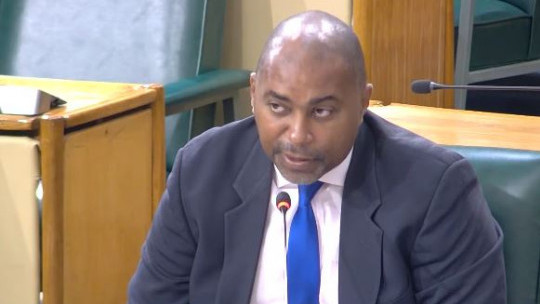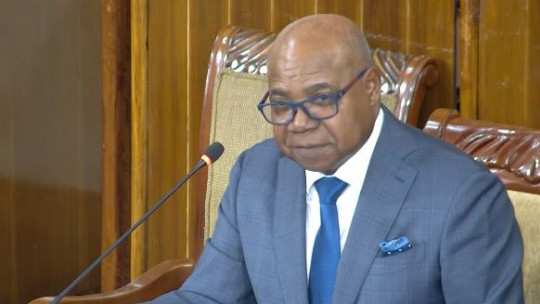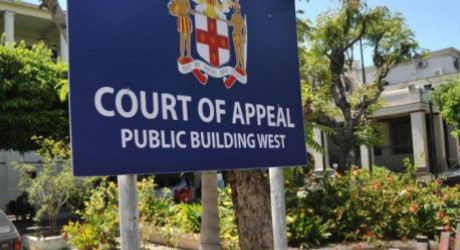.png)
Opposition member of the Integrity Commission Oversight Committee, Julian Robinson, and Chairman Edmund Bartlett
By Halshane Burke
The Integrity Commission has been encouraged to make public when a public servant, once found in breach, has been cleared of wrongdoing.
Julian Robinson, a member of the Integrity Commission Oversight Committee of Parliament, said it is important that the reputations of these individuals are protected.
He was speaking against the background of former Chief Executive Officer of the Registrar General's Department, Charlton McFarlane, pleading guilty to breaches of the Integrity Commission Act after failing to submit his statutory declarations for 2019, 2020, 2021 and 2022.
Mr. McFarlane has since been cleared of criminal liability.
Mr. Robinson contends that equal effort is needed to advise the public of the natural conclusion of matters.
"Without more, the public wouldn't know that the matter has been resolved. And in a case like his, you trade on your reputation. And so I believe if he has satisfied everything that you have asked of him, and he has also dealt with the court matters, I think it is important to indicate, even if it's a letter to him or to the committee, to say he has successfully dealt with the issues, and there is nothing outstanding."
"He was the head of the RGD. It was all over the media, and it's important that the public knows, for his own future employment prospects, that he has complied with what you have asked him to do," Mr. Robinson suggested.
Committee chairman Edmund Bartlett said, once the requirements are met, the statutory declarations would then be certified, nullifying the sanctions for the initial breach.
"So having satisfied it whether through court payments, as the case might be or sentencing or whatever, having satisfied it, does that now make him ready for certification? And if so, shouldn't it possibly be made known, so as member Robinson correctly said, to clear the air. The hard cold facts are that naming and shaming is as deleterious to the future of individuals as an actual charge in court, and people do suffer irreparable damage," he contended.
Both men were speaking at Wednesday's meeting of the Integrity Commission Oversight Committee.
comments powered by Disqus










 All feeds
All feeds







